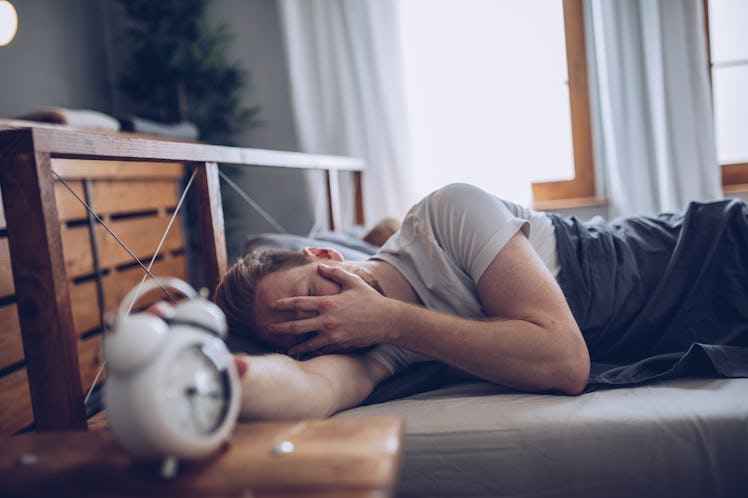Do Hangovers Really Get Worse With Age?
What seems like common knowledge — that getting older means hangovers get worse — doesn’t really hold up on close inspection.

Did you used to be able to down beers all weekend, then barely feel any worse for the wear on Monday morning? And now, after you have a few drinks with your buddies, you have a horrible hangover the next day? If so, you’re not alone in this feeling. But do hangovers really get worse with age? The answer may not be what you expect.
Studies don’t support the idea that hangovers get worse as we get older, says Linda Peng, M.D., an assistant professor of medicine at Oregon Health & Science University. In fact, in survey-based studies, when researchers accounted for how much people drank, they discovered that their hangovers actually became milder with age and that they had fewer hangovers overall, says Peng.
For instance, in a 2021 study based on surveys of 761 Danish adults between the ages of 18 and 94, researchers concluded that “hangover severity declines with age,” even after they controlled for the amount of alcohol consumed.
“Survey studies are never perfect,” Peng notes. However, “there’s not a ton of great research on hangovers,” likely because research funding in this area tends to go towards studying aspects of drinking that affect peoples’ health long-term, she says. However, the evidence that is available indicates that hangovers don’t worsen as we get older.
A bunch of factors could explain why hangovers seem to get worse with age even though there’s evidence to the contrary.
First, metabolism of alcohol is affected by genetics, but it can also change with age, according to Peng. As we get older, the total amount of water we have in our bodies shifts, which leads to changes in how alcohol is absorbed. “Older adults tend to absorb alcohol a little bit more quickly,” she says. This could make people become more sensitive to the negative impacts of alcohol as they’re drinking, which could make them feel worse later on.
Our perception of information changes with time, so it’s also possible that when you think back to drinking when you were younger, you remember more about the fun you had and less about how sick you felt the day after. “That’s a good hypothesis,” Peng says. “But I think if you ask people to think really hard, they would remember they probably had some pretty bad hangovers when they drank a lot.”
Hangovers may also seem more severe than they used to be if you’re now facing more demands and less recovery time after drinking. Your experience will likely be completely different if you can sleep your symptoms off on a lazy morning than if you’re woken up at 7 a.m. by toddlers jumping on your bed. “If you don’t have that time to recover, it’s going to feel like it affects your life more,” Peng says.
In other words, the setting can really change the way we perceive the physical symptoms of a hangover. Coping with a headache in a quiet, dark room is quite different than doing so with kids bouncing around, whining about being bored or hungry.
If you’re drinking the same amount you used to or less and notice a significant uptick in hangovers, you may want to talk with a doctor. This is especially true if you notice sudden and major drops in your alcohol tolerance, which could be a sign of liver issues or another medical problem, Peng says. She also notes that it could be a normal age-related change in your body’s tolerance of alcohol, but it’s worth talking with a medical professional to rule out a major medical issue.